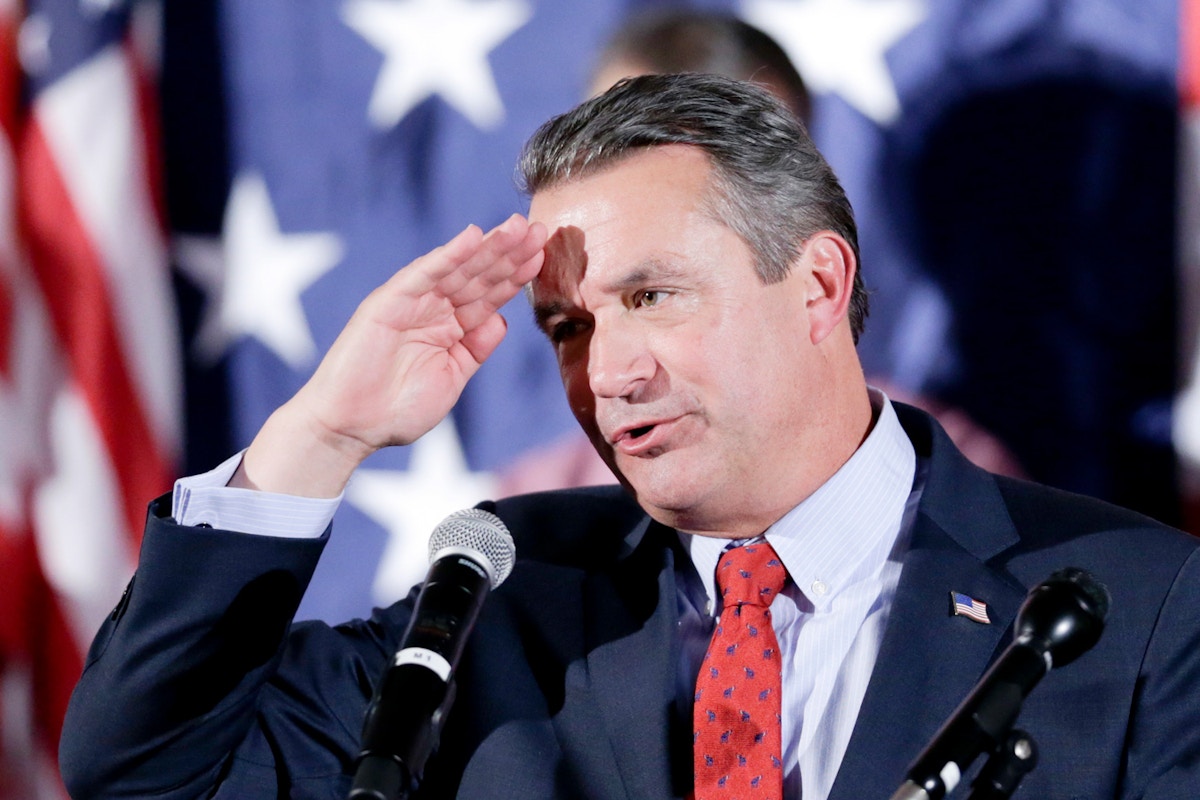
Congressman Don Bacon, R-Neb., used his congressional expense account to pay his campaign strategist, a move that may raise ethics concerns over the use of taxpayer funds.
Bacon’s congressional office made two payments this year using government funds totaling $52,518 to “Double Bogey Strategies,” a limited liability company registered in Alexandria, Virginia, and owned by David Watts, the campaign strategist advising Bacon’s reelection effort.
The expense payments to Watts’s company included $20,371 for “printing & reproduction” and $32,147 for “advertisements.” Watts also owns Double Eagle Strategies, a campaign consulting firm retained by Bacon since 2017.
House ethics rules and federal law prohibit the use of congressional government funds on communication advisers and campaign advisers, as well as for any campaign-related purposes. While Watts may have been doing work for the congressional office, using the same consultant for the campaign and the congressional office is unusual.
Congressional advertising, mass email, and unsolicited postal mail funded by the government is allowed under extensive restrictions to prevent lawmakers from spending government funds on explicitly political endeavors. Such communications are generally used to announce town halls and other constituent services.
Watts, a former official with the National Republican Congressional Committee, has played an active role in the Bacon campaign, and records show that he has advised the lawmaker throughout the campaign this cycle. His name appears in the Bacon campaign’s mass emails to supporters, and a Bacon campaign commercial is featured on Watts’s consulting website as an example of his accomplishments.
Neither the Bacon campaign nor Watts responded to multiple requests for comment. Bacon’s congressional office acknowledged an inquiry from The Intercept but has not responded.
Bacon represents Nebraska’s 2nd District, which is centered around Omaha and is one of the most competitive House seats in the country. He is facing a spirited rematch challenge from Democratic candidate Kara Eastman, a social worker and nonprofit leader who lost in a close race during the midterm election. Eastman out-raised Bacon in the latest round of quarterly campaign finance disclosures and polls suggest another close race.
The Bacon campaign has paid Watts’s company at least $178,478, including payments totaling $15,000 during the period when Watts’s other firm also received funding from Bacon’s congressional expense account.
In comments to the press, Watts has explained that he has helped his clients, including Bacon, adapt to a campaign environment constricted by the coronavirus pandemic.
“What’s been interesting is that for most of the past nine weeks, the pandemic has kept members in their districts and that’s given them the chance to do lots of Zoom meetings with their constituents,” Watts told the Well News, a political news site.
The government payments to Watts’s company are listed in Bacon’s filing in his Members’ Representational Allowance report that lists expenses spent between April 1 through June 30 of this year. Members of the House of Representatives are provided an MRA account to hire official staff, pay rent at district offices, reimburse for travel, and fund other activities related to official congressional affairs.
Congressional ethics rules state that MRA funds may only be used to hire contractors for general, nonlegislative office work unrelated to campaign or political activities, such as custodial services and equipment maintenance.
Lawmakers frequently misuse government funds meant for legislative and constituent services.
Last July, the House Ethics Committee fined Rep. David Schweikert, R-Ariz., $50,000 for using his MRA expense account for campaign-related funds.
An investigation had found that the Arizona Republican spent $270,000 in congressional MRA funds on a series of campaign-related travel, accommodations, and food. Staff hired using MRA funds also performed campaign-related duties, in violation of ethics rules and federal law.
In 2018, the House Ethics Committee found that then-Rep. Luis Gutiérrez, D-Ill., improperly used his MRA expense to hire his former chief of staff through a consulting firm, a violation of the ban on hiring consultants using the account. Gutiérrez was ordered to pay $9,700 back to the U.S. Treasury.
And, in perhaps the most famous recent case, former Rep. Aaron Schock, R-Ill., stepped down after reports showed that he had used his MRA account for lavish decorations of his congressional office designed to reflect the design of a room in the television show “Downton Abbey.”
"pay" - Google News
October 29, 2020 at 01:47AM
https://ift.tt/37LyaCd
Rep. Don Bacon Used Taxpayer Expense Account to Pay Campaign Consultant - The Intercept
"pay" - Google News
https://ift.tt/301s6zB
Bagikan Berita Ini














0 Response to "Rep. Don Bacon Used Taxpayer Expense Account to Pay Campaign Consultant - The Intercept"
Post a Comment